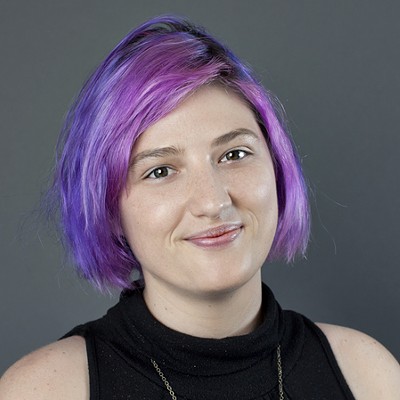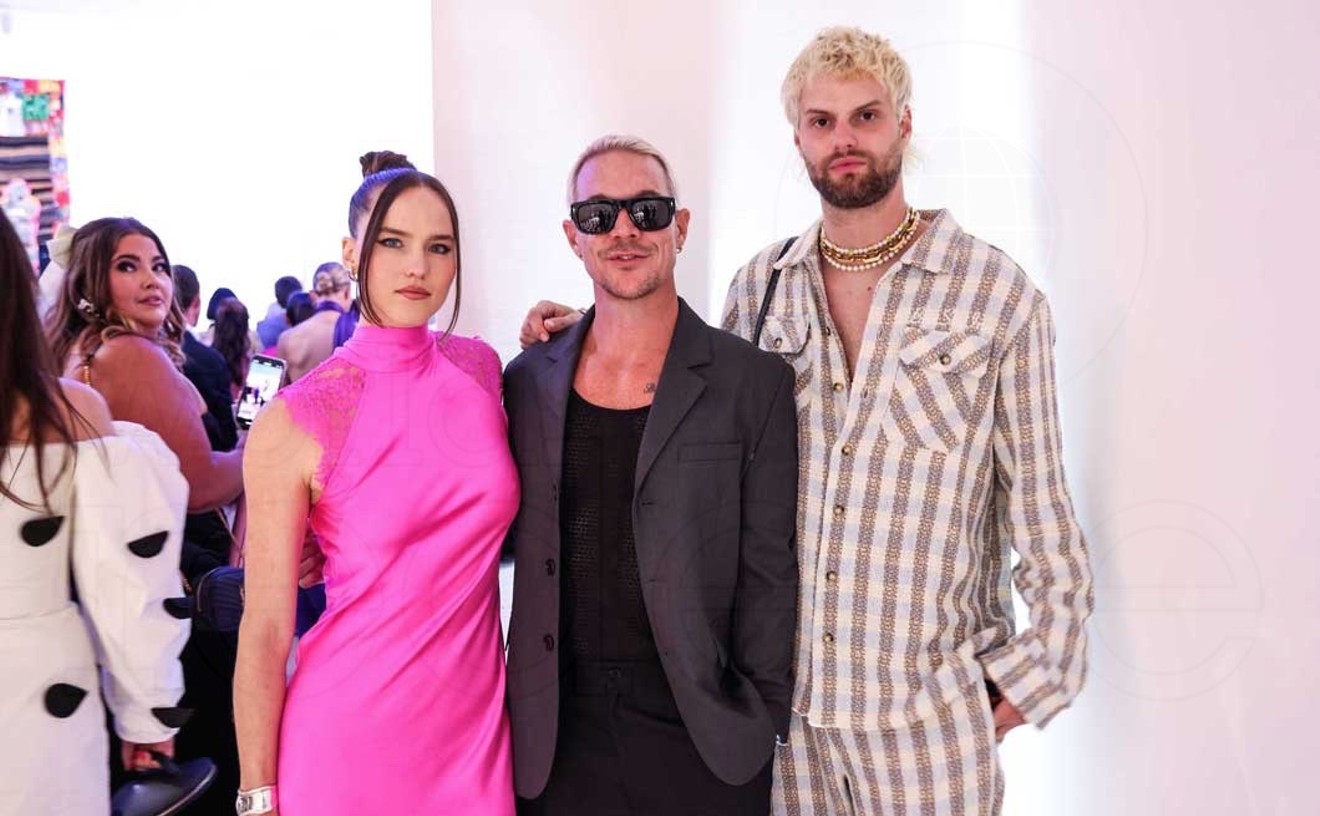It's not unusual for a stand-up comic to put himself down, but no one has really taken an audience through their entire life story - ups and downs, and drunken nights, and regrettable mistakes, and evil encounters with others - quite in the way John Leguizamo is about to on HBO.
Famous for his one-man shows including Freak and Sexaholics, his latest effort, Ghetto Klown, gives a retrospective look at his life and career, exploring the people and events that him to a life of art through comedy, and how he managed not to give up along the way.
Leguizamo visited Miami, and we met up with him to talk candidly about the new project and why he just had to air his dirty laundry in the first place.
Cultist: What made you want to do a career retrospective?
My first autobiographical piece was Freak in '98, which was my teen years. I dabbled in that, and I didn't know what was going to happen. Then I did Sexaholics, which was about all my dating. I wanted to do the whole life, and that was the plan of Ghetto Klown. So the beginning is very Wikipedia, in case you don't know or in case you forgot me, to catch up from birth to landing here. Then it begins with how did I become an artist, why did I become an artist? Why comedy? Why act? Why do the one-man shows? And why continue? What were the ups and downs, and what made me want to quit on myself? It became an inspirational piece, because to be an artist is to have many rebirths.
The beautiful thing about being an artist is that, in the most horrifying things in life, we can find beauty, and I'm so grateful to be an artist for that very reason. I think Ghetto Klown celebrates all those things; all the horrible things that happened to me, all the great things. It's all just fodder. I traveled around the country testing it out, and I saw lots of people dug it. People came up to me going "I was going to quite dancing, acting, writing, but I saw your show and I was inspired to give it another shot." That warmed my heart so much, because that's what I was trying to impart. That was the purpose of sacrificing myself.
That's the real challenge for an artist, to keep going. Things won't always go your way.
It's not going to go your way. It's not supposed to go your way. That's not life. Your job is to steer it back. How do you get back on your feet? How do you keep going?
You're comfortable calling yourself an artist, and obviously at this point in your career, yes.
I've always loved the idea of persuing the art. Everybody can be a performer. It's cool to be an actor and just interpret, do the commercial thing. But an artist takes risks. An artist puts his life in danger. An artist says things that are going to hopefully elevate and make the world a better place, but at the same time they can be very hurtful to the artist. That's what I strive for and who I align myself with.
At what point do you feel you went from being a performer to being an artist?
It all happened for me in my acting classes. I studied acting a lot, since I was 17 and with some of the great teachers. I studied with Lee Strasberg, Herbert Berghof, Bill Hickey, Geoffrey Horne, Susan Batson - I studied with some great people. They're the ones that push you there. They're the ones that make you see the difference. They're the ones that educate your eye, your ear, and point you in the right direction. They made me see what was cheap and easy and commercial (versus) what was art and what was worth striving for.
Do you share those anecdotes in Ghetto Klown?
It is in Ghetto Klown. Definitely my math teacher had a lot to do with it, too. Mr. Zufa. I was a pain in the ass, I was a cut above the class clown, and I would not let him teach class. He had all these ghetto kids in his class, this white teacher of ours, but he dug my sense of humor. I knew he dug me, and he said to me "why do you waste your time annoying the class? Why don't you become a comedian and use this ability for something?" I was a punk, but it entered me, man. It touched me, and I started to think "wow, maybe I could do something with my life." That was the first one, and then I studied with Lee Strasberg, and just the method, that was for me. That shit turned my whole life around. It was like, "oh wow, you can use all of yourself, every molecule, every piece of DNA of your life can be used in your art," and that's what the method gave me. That's what Strasbourg gave me. He was just 'use yourself,' and that was it, man. That's what transformed my whole life, instead of being destructive and turning it all into myself, turn it into something creative.
Sounds like Ghetto Klown is the culmination of all that.
Oh yeah, that was the plan. I'm still funny as hell, but I want to be funny and move people, sucker punch them with some emotion. That's what I've always done in my comedy. I've always put hard issues, social issues, and the horrible things, because I feel like that's how my life is. Why does comedy always have to be just glib, or silly and slapstick - which, I love, too, but not for me. I think you could laugh and it can be meaningful and be instructive. I just felt like comedy can be everything. I love dance and I always put dance in it. I put music, I put everything that's Latin that formed me, made me, fed me.
Are you a fan of autobiographies in general?
I've always eaten up autobiography books, biographies, authorized, unauthorized. I love it. I used to eat 'em up when I was a kid. Bob Hope, Lucille Ball, Dezi Arnez, Richard Pryor, Jerry Lewis, Frank Sinatra; I read' em all, and I love them. They weren't any autobiography plays. The only one they had when I started doing my stuff was all the Samuel Clemons, the young Lincolns, Huey Newtons, a lot of historical and politic persons, and for obvious reasons. But I wanted to do it on myself, because I felt so invisible in this country, in this world. I moved every year of my life. I came from a foreign country when I was three, and then we moved every year of my life until I was in my late teens. I was always the new kid in school.
Basically giving your biography anyway.
Having to give it and not share in a history that everybody had. Freak, Sexaholics, Ghetto Klown gave me a history, gave me roots, gave me a place in the timeline in America that I craved so hard. I know young Latin kids are craving for that same 'where do I fit in in this country? where's my contribution? How do I contribute to a place that doesn't count me.'
When did you start writing Ghetto Klown? Maybe you were always writing it?
That's deep. Yeah, maybe you know, I guess you're right. I was always striving for Ghetto Klown my whole life, definitely. I mean, I started literally writing when I was 17 or 16. I used to write my jokes before I went to school that day. I used to have files of my jokes. I used to write stuff about every kid in the class, some kind of diss, because we were poor, and when I got to high school I was just the butt of everybody's joke. My mom was broke, she was a single mom and she used to shop at the bargain bins for sneakers. I had the converse sneakers without the stripes, so I had to draw with Sharpie the stripes, and then when it rained, it would melt. I'd have to walk on the edge of the curb.
In terms of the title, I saw you saying how you were the class clown in the ghetto, but is it also maybe representative of how you felt coming up in Hollywood?
Hollywood's always tried to pigeon hole everybody. It's their job to make you a product and to be able to sell you, and it's your job not to let them do that to you. Definitely being a Latin man, they want to put you in that little box, and you've got to fight with everything you've got not to be put there. I refused, and the great thing about not fitting in and being rejected was that it made me write my own stuff and say "f- you." It gave me an ability and an incredible opportunity.
Going on stage and performing is hard, but to then open up about yourself must be tremendously strange. Were some parts harder than others?
Ghetto Klown was the hardest of them all. First of all, how do you compress your whole entire life into two hours? For HBO, it's 90 minutes, but when I was on Broadway, it was two hours. Secondly, how do you tell about your victories without sounding like you've got tons of hubris, super narcissistically? Then, telling all the horrors and all the flaws and all my fucked up-edness. It was easy to write it down, incredibly easy, but the first night I was going to perform it, I got full of so much anxiety and I panicked. I just wanted to run down the street and never turn back, but I said "if I do, I'll never do this." Against all my fears and misgivings, I went out there, and it was a great experience. Very embarrassing, I couldn't even look up sometimes at the beginning, I did it from my computer. I would just look down and mumble it, but then I heard laughs, so I got a little courage, and the more I did it, the more courage I got. But then, when I saw it again, it was the same kind of feelings of that first performance, to watch myself saying all these things. There was a lot of that.
What do you take away from the experience in hindsight?
I think it's the forgiveness. All of it; for myself, other people, my parents, the managers who robbed me, all that. I had a lot of anger. I wanted a lot of revenge. I wanted to get even and get back at so many things. A lot of it was getting back. But now, I think the whole thing taught me forgiveness. You've got to move on. You've just got to. Even if you're not writing off-Broadway shows, you've got to move on. I've moved on, forgave them all. Everybody.
Ghetto Klown premieres on HBO Saturday, March 22, at 10 p.m. EST. It will run again at 4:14 a.m., and on Saturday, March 30, at 10:30 p.m., as well as on HBO2 Monday, March 24, at 9 p.m. and 2:20 a.m., and Friday, March 29, at 12:35 a.m. Visit hbo.com.
Follow Cultist on Facebook and Twitter @CultistMiami.
Follow Kat Bein on Twitter @KatSaysKill.











